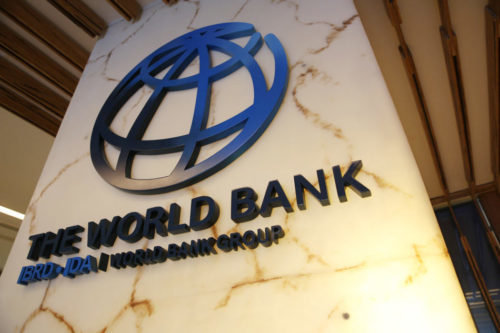The World Bank Group has downgraded Nigeria’s growth projection for 2023 and 2024 to 2.9 percent, as against the 3.1 percent it had predicted for the country in June 2022.
The Washington-based institution made the projection in its latest Global Economic Prospects (GEP) released on Tuesday.
The bank noted that the downgrade was a result of the underperforming oil and gas sector, insecurity, floods, and rising production costs.
Also, the Sub-Saharan Africa growth for 2023 was revised to 3.6 percent a 0.2 percentage point downward revision from the June forecast.
However, the region’s growth was expected to accelerate to 3.9 percent in 2024.
“Growth in Nigeria, the region’s largest economy weakened to 3.1 percent in 2022, a 0.3 percentage point downgrade from the June projection. Oil output dropped to one million barrels per day, down by over 40 per cent compared to its 2019 level, reflecting technical problems, insecurity, rising production costs, theft, lack of payment discipline in joint ventures, and persistent underinvestment, partly because of the diversion of oil revenues to petrol subsidies, estimated at over two per cent of GDP in 2022,” it said.
The World Bank stated that a strong recovery in non-oil sectors moderated in the second half of the year as floods and surging consumer prices as annual inflation surpassed 21 percent for the first time in 17 years disrupted activity and depressed consumer demand.
“Persistent fuel and foreign exchange shortages, with the naira depreciating by over 30 per cent last year in the parallel market, further dampened economic activity. In Nigeria, growth is projected to decelerate to 2.9 per cent in 2023 and remain at that pace in 2024 barely above population growth.
“A growth momentum in the non-oil sector is likely to be restrained by continued weakness in the oil sector. Existing production and security challenges and a moderation in oil prices are expected to hinder a recovery in oil output.
“Policy uncertainty sustained high inflation, and rising incidence of violence are anticipated to temper growth. Growth in agriculture is expected to soften because of the damage from last year’s floods.
“As fiscal position is expected to remain weak because of high borrowing costs, lower energy prices, a sluggish growth of oil production, and a subdued activity in the non-oil sectors,” it further stated.
